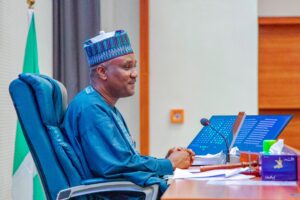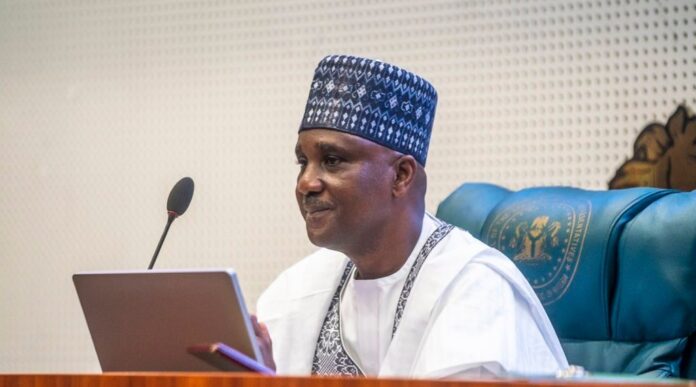Mr. Tajudeen Abbas, the Speaker of the House of Representatives, has issued a caution against Nigeria’s heavy dependence on crude oil, warning that it exacerbates issues such as inequality, poverty, and unemployment.
During the 14th convocation lecture at Al-Hikmah University in Ilorin on Monday, Abbas emphasized the urgent need for Nigeria to diversify its economy by tapping into its rich mineral resources and leveraging its human capital.
He highlighted the necessity of intentional efforts to explore and develop other sectors like agriculture, solid minerals, technology, and creative industries.

Abbas asserted that to secure a prosperous economic future, Nigeria must transition away from oil dependency and establish sustainable avenues for inclusive growth.
“With declining oil revenues, global trends shifting towards renewable energy, and the pressing demand for job creation, it is essential for us to forge a new path for economic transformation,” he stated.
“This transformation requires focused initiatives to harness the potential of alternative sectors, such as agriculture, solid minerals, technology, and the creative industries.
“By achieving this transformation, we can secure Nigeria’s economic future and effectively tackle poverty, inequality, and unemployment—crucial obstacles to sustainable development,” he added.
In his lecture titled “Beyond Oil: Exploring Alternative Revenue Potentials for Economic Growth and Sustainable Development in Nigeria,” Abbas referenced Saudi Arabia, Malaysia, and the United Arab Emirates as exemplary nations that have successfully transformed their economies through diversification.
“They have shown that economic transformation is possible through intentional diversification strategies supported by policy reforms, infrastructure development, and human capital investment,” he noted.
The Speaker emphasized that targeted policies, institutional reforms, and collaborative partnerships are vital for unlocking potential within various sectors, including agriculture, manufacturing, and renewable energy.
He concluded by stressing that Nigeria’s economic transformation calls for a collective commitment, with the government taking the lead through visionary policies and strategic investments.




